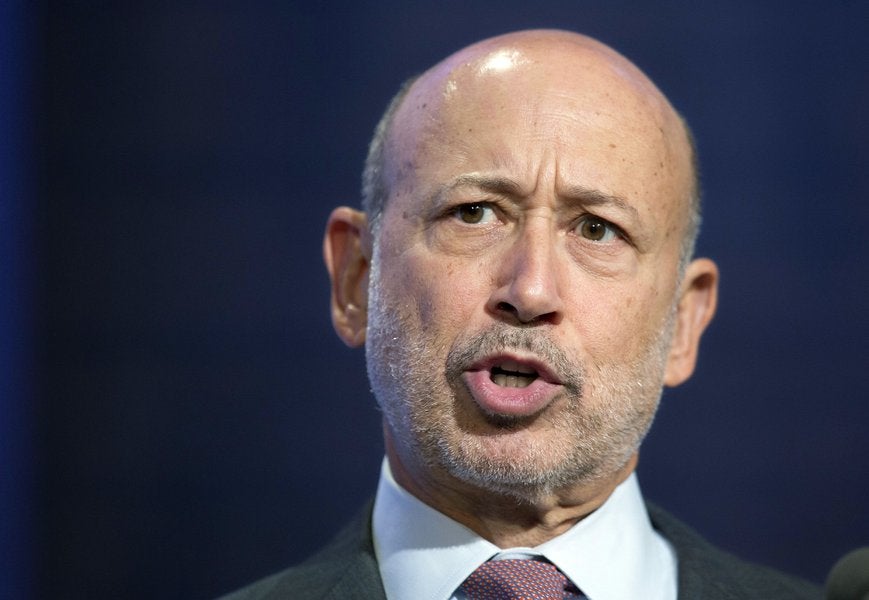Goldman Sachs boss warns City will "stall" post Brexit, but his timing is terrible
Lloyd Blankfein is right that the UK needs to seek a close partnership with Europe, but in the heat of an election campaign no one is likely to listen

Your support helps us to tell the story
From reproductive rights to climate change to Big Tech, The Independent is on the ground when the story is developing. Whether it's investigating the financials of Elon Musk's pro-Trump PAC or producing our latest documentary, 'The A Word', which shines a light on the American women fighting for reproductive rights, we know how important it is to parse out the facts from the messaging.
At such a critical moment in US history, we need reporters on the ground. Your donation allows us to keep sending journalists to speak to both sides of the story.
The Independent is trusted by Americans across the entire political spectrum. And unlike many other quality news outlets, we choose not to lock Americans out of our reporting and analysis with paywalls. We believe quality journalism should be available to everyone, paid for by those who can afford it.
Your support makes all the difference.Just we needed to soothe the increasingly angry economic and political waters Britain is sailing through: Goldman Sachs boss Lloyd Blankfein has walzed into the election campaign through an interview wth the BBC.
But he’ll have had something interesting to say, right?
If that's what you were hoping, get set to end the week with a disappointment.
In his interview, Mr Blankfein warned that London will “stall” thanks to the risks created by Brexit and Goldman Sachs has contingency plans to move people out (there are 6,500 of them in London) depending on the outcome of talks with the EU (so if I was them I’d be pricing up property).
However, on the bright side, he’d really like to keep as much business in the UK as possible. Hooray!
Mr Blankfein, in other words, said more or less what every bank you might care to mention has been saying for months now.
It's a strange position for me to find myself in, but there’s actually all not much I can find to disagree with in what he had to say.
Financial services is very important to the UK. That isn’t always a blessing, and it is a mark of the policy failures of multiple administrations that it has been allowed to become so dominant. But we are where we are and with it paying more than £70bn in tax, 11.5 per cent of Government receipts, and employing more than 1m people, it would be crazy to cripple it without any plan for how to replace it. The point Mr Blankfein was (more or less) making.
Unfortunately craziness has taken up residence wherever you care to look in Britain's corridors of power.
Mr Blankfein was also right to say that the best outcome for the UK right now would be to seek the closest possible ties with the EU. Unfortunately (again), it’s hard to see that happening given the way Theresa May and her chums are carrying on.
A Government led by someone who in another life might have been the regional manager for a building society, is going about Brexit in the narrow best interests of the Tory Party, and the tabloids. If that damages the City, if that damages Britain, what the hey? At least we've sent Farage and Corbyn packing.
It’s possible that what Mr Blankfein was trying to do against that backdrop was say something like “guys please!" or perhaps "just stop and think for a mintue" even "cool it!". That's basically what the CBI has also been trying to do as well.
Unfortunately, it's hard to see Ms May and her people paying much attention in the midst of an election campaign. Mr Blankfein really ought to know that from the recent experience of his home country.
If anyone who matters was listening - someone like Chancellor Philip Hammond for example - they’ll only have had half an ear cocked. The order of the day is convincing the British electorate that an increasingly extreme looking Conservative Party can provide “strong and stable Government” (ugh).
Mr Blankfein saying that the UK needs to work with Europe (or words to that effect) may ultimately simply service to confirm the prejudices of the people that party is talking to. His timing could hardly have been worse.
It is, if you think about it, rather emblematic of the disconnect between these people and the wider world in which they operate and it's partly because of the latter that we got here in the first place.
Join our commenting forum
Join thought-provoking conversations, follow other Independent readers and see their replies
0Comments